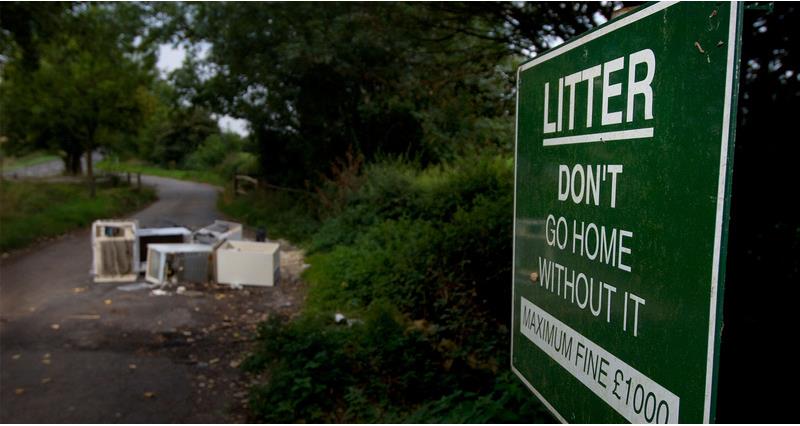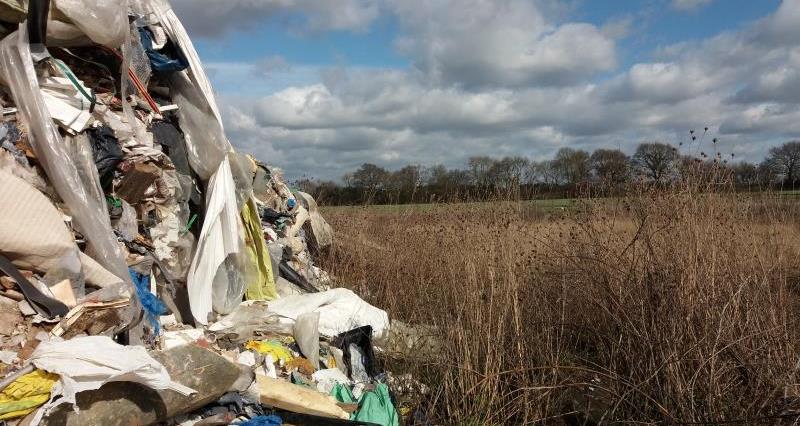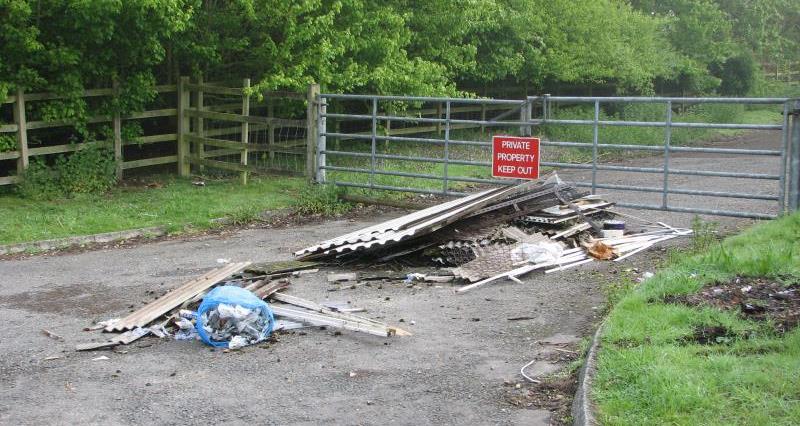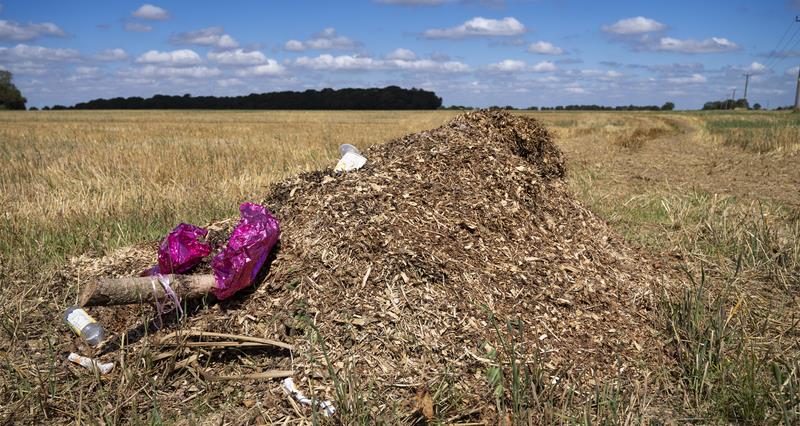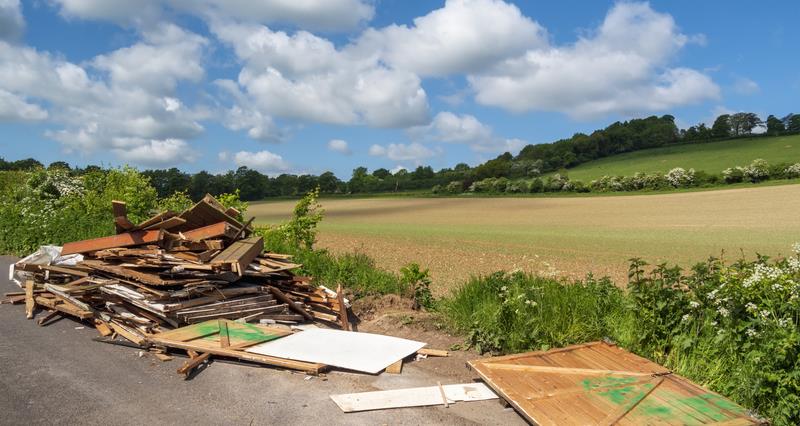The statistics indicate a growing challenge with managing fly-tipping, particularly concerning household waste with these incidents climbing by 5%, despite a slight reduction in incidents occurring on highways.
The most frequent size category for fly-tipping was ‘small van load’ (31% of total incidents), followed by ‘car boot or less’ (28%). Notably, larger incidents classified as ‘tipper lorry load’ constituted 4% of total incidents, amounting to 47,000 cases in 2023/24.
Data excludes the large-scale incidents dealt with by the Environment Agency and the majority of private-land incidents.
It should be noted that the private land data included does not reflect the full scale of fly-tipping on private land, as most cases go unreported.
It is still disappointing that these figures do not accurately reflect fly-tipping on private land, which is estimated to impact two-thirds of farmers.
A constant battle
According to the newly released figures:
- There was a notable 8% rise in fly-tipping incidents involving construction and demolition waste, indicating a potential trend of improper disposal practices within the building industry.
- There was an increase of approximately 11% in the number of large fly-tipping incidents.
- The cost of clearance to local authorities in England in 2023/24 was £13.1 million. This increase highlights the growing economic impact of illegal waste disposal.
- Local authorities carried out 528,000 enforcement actions in 2023/24, a slight decrease from 2022/23.
- The number of fixed penalty notices issued was 63,000 in 2023/24, a decrease of 5% from 67,000 in 2022/23.
“For farmers, this isn’t just a statistic – it’s a constant battle.”
NFU Vice President Rachel Hallos
NFU Vice President Rachel Hallos said the latest figures confirmed what many farmers across the country already knew – “fly-tipping is an escalating problem that continues to blight our countryside”.
She said the 6% overall rise is “deeply concerning”.
“Fly-tipping continues to be a huge problem and one that plagues the lives of so many of us living and working in the countryside.
“The scale of waste crime is staggering, with nearly a fifth of all waste – an estimated 34 million tons – being handled illegally every year. For farmers, this isn’t just a statistic – it’s a constant battle against illegal dumping, the damage it causes to our land and the financial burden of clearing it up.”
The NFU has welcomed recent government initiatives to help combat the issue, including increasing the maximum penalty for fly-tipping from £400 to £1000 under the Antisocial Behaviour Plan and funding a new fly-tipping post within the National Rural Crime Unit.
Government plans to abolish the fees local authorities charge for disposing of DIY waste at HWRCs (household waste recycling centres) also came into force on 31 December 2023. Although some charges still apply and booking systems can mean lengthy waits.
Joined up approach needed
The NFU believes the whole system needs to tackle fly-tipping at the source – from packaging design, recycling, landfill tax and tip opening hours – to make it easier for the public to reduce, re-use and recycle waste.
Proportionate penalties as a deterrent to potential offenders, combined with more consistent enforcement measures, are key to addressing this issue.
Rachel added: “The fact that these statistics don’t even capture the true scale of the problem on private land only reinforces the urgent need for stronger deterrents, better enforcement and real support for victims.
“The NFU has long called for tougher action on waste crime, including holding those responsible to account and ensuring local authorities and the Environment Agency have the resources they need to tackle this growing issue and protect our rural communities, businesses and the environment.
“We need a joined-up approach that makes it easier to dispose of waste responsibly and holds accountable those who choose to break the law.”
Small-scale fly-tipping incidents were included in the latest National Waste Crime Survey.
Reporting incidents
Have you experienced fly-tipping on your farm? We’re encouraging farmers and landowners who’ve been affected to share details of incidents with us using our online form.
Your information will help strengthen our case for tougher action.
If you know or suspect illegal waste activity is taking place, report it anonymously to Crimestoppers: Give information | Crimestoppers or call 0800 555 111. The 24-hour incident hotline is also available on 0800 80 70 60.
